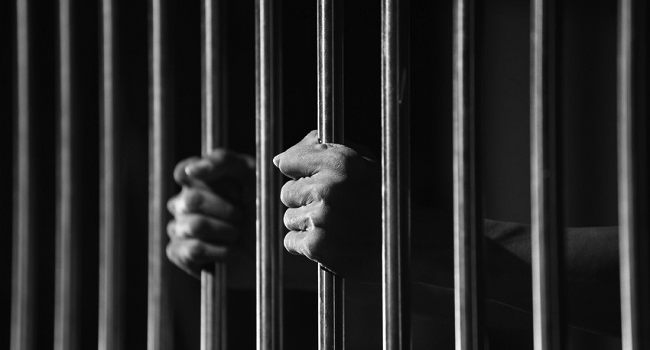A Hong Kong court has handed down prison sentences to prominent pro-democracy figures following a contentious national security trial.
Benny Tai and Joshua Wong, part of the so-called “Hong Kong 47,” were convicted for their roles in a plan to select opposition candidates for local elections. Tai received a 10-year sentence, while Wong was sentenced to over four years.
Most members of the group were found guilty of conspiring to attempt subversion, with only two acquitted.
This trial represents the largest application of the sweeping national security law (NSL), implemented by Beijing in the wake of Hong Kong’s massive pro-democracy protests in 2019.
The 2019 protests, sparked by a proposed extradition treaty allowing transfers from Hong Kong to mainland China, evolved into broader demands for democratic reform, drawing hundreds of thousands to the streets for months.
Critics argue that the NSL and the trial’s verdicts have severely weakened Hong Kong’s pro-democracy movement and legal system, enabling Beijing to consolidate its control over the city.
The U.S. has condemned the trial as “politically motivated,” while Australia expressed “grave concerns” over the sentencing of Australian citizen Gordon Ng and voiced strong objections to the NSL’s use.
In contrast, Beijing and Hong Kong authorities defend the law, claiming it is vital for maintaining stability and safeguarding national security.
They assert that the convictions send a clear message against attempts to undermine China’s sovereignty.
The trial of Hong Kong’s pro-democracy figures has drawn significant attention, with dozens of citizens queuing outside the court days before sentencing to secure seats in the public gallery. On Tuesday, the court issued prison sentences ranging from four to ten years.
Benny Tai, a former law professor and mastermind behind the unofficial primary election plan, received the longest sentence. Judges accused him of “advocating for a revolution.”
Joshua Wong, who pleaded guilty, had his sentence reduced by a third. However, judges refused further leniency, citing that he was “not considered a person of good character.”
Wong was already serving a sentence for participating in earlier protests at the time of his arrest.
Other key figures sentenced included Gwyneth Ho, a journalist-turned-politician, and former lawmakers Claudia Mo and Leung Kwok-hung. They received sentences ranging from four to seven years.
The unofficial primary, held in July 2020, was organized as a way to sustain the pro-democracy movement after the 2019 protests waned during the COVID-19 pandemic.
The initiative aimed to strengthen the opposition’s ability to block pro-Beijing legislation in the Legislative Council. Over half a million Hongkongers participated in the vote.
At the time, organizers argued that their actions were within the bounds of the Basic Law, Hong Kong’s mini-constitution, which guarantees certain freedoms. However, the crackdown under the national security law has significantly restricted these rights.
But it alarmed Beijing and Hong Kong officials, who warned that the move could breach the NSL, which came into effect days before the primary. They accused the activists of attempting to “overthrow” the government, and arrested them in early 2021.
At the end of the trial, the judges agreed with the prosecution’s argument that the plan would have created a constitutional crisis.
A Human Rights Watch spokesperson described Tuesday’s sentencing as showing “just how fast Hong Kong’s civil liberties and judicial independence have nosedived” since the enactment of the “draconian” NSL. They added that China and Hong Kong’s governments “have now significantly raised the costs for promoting democracy in Hong Kong”.
The pro-Beijing government may have used the trial to “settle scores” with the pro-democracy camp, said John P Burns, emeritus professor at the University of Hong Kong.
“Central authorities are also using the trial to re-educate the Hong Kong people,” Dr Burns said, with the lesson being “‘national security is the country’s top priority; don’t challenge us on national security’.”
“The case is significant because it provides clues to the health of Hong Kong’s legal system,” he told the BBC. “How can it be illegal to follow processes laid down in the Basic Law?”
Stephan Ortmann, assistant professor of politics at the Hong Kong Metropolitan University said the sentencing “set a precedent for the severity of of punishments for political dissent under the NSL”.
The pro-democracy movement has now been “greatly weakened” where “self-censorship has become the norm, and fewer people openly align themselves with the pro-democracy camp”, he added.
But activists say that the sentencing is far from a complete victory for Beijing.
“It doesn’t mean the Beijing government wins the heart of the people,” said Sunny Cheung, an activist who also ran in the 2020 primaries but has since fled Hong Kong to live in the US.
“They might be happy in a way because the entire opposition is being wiped out… but at the same time, they lost the whole generation. They don’t have the trust of the people.”


